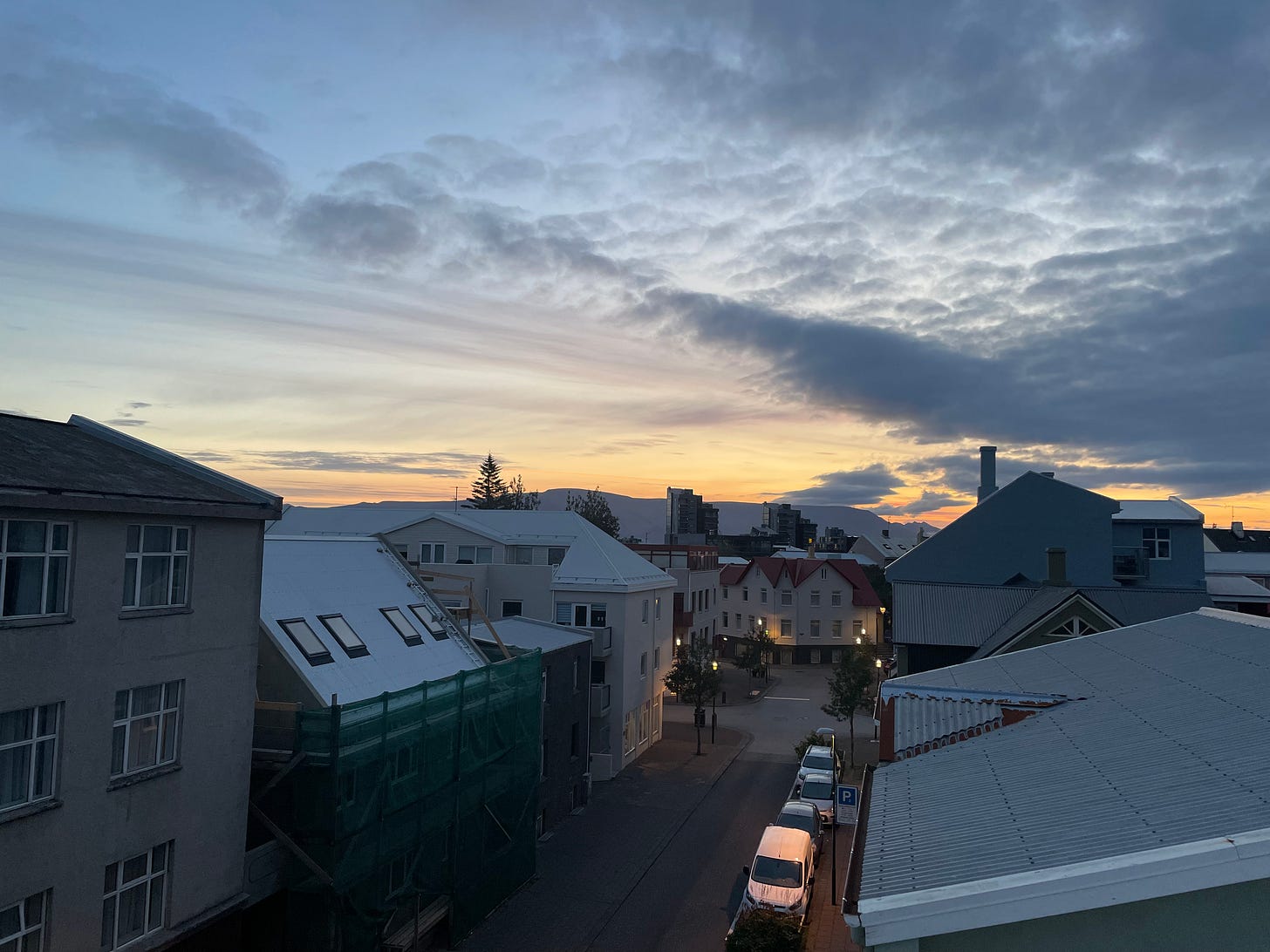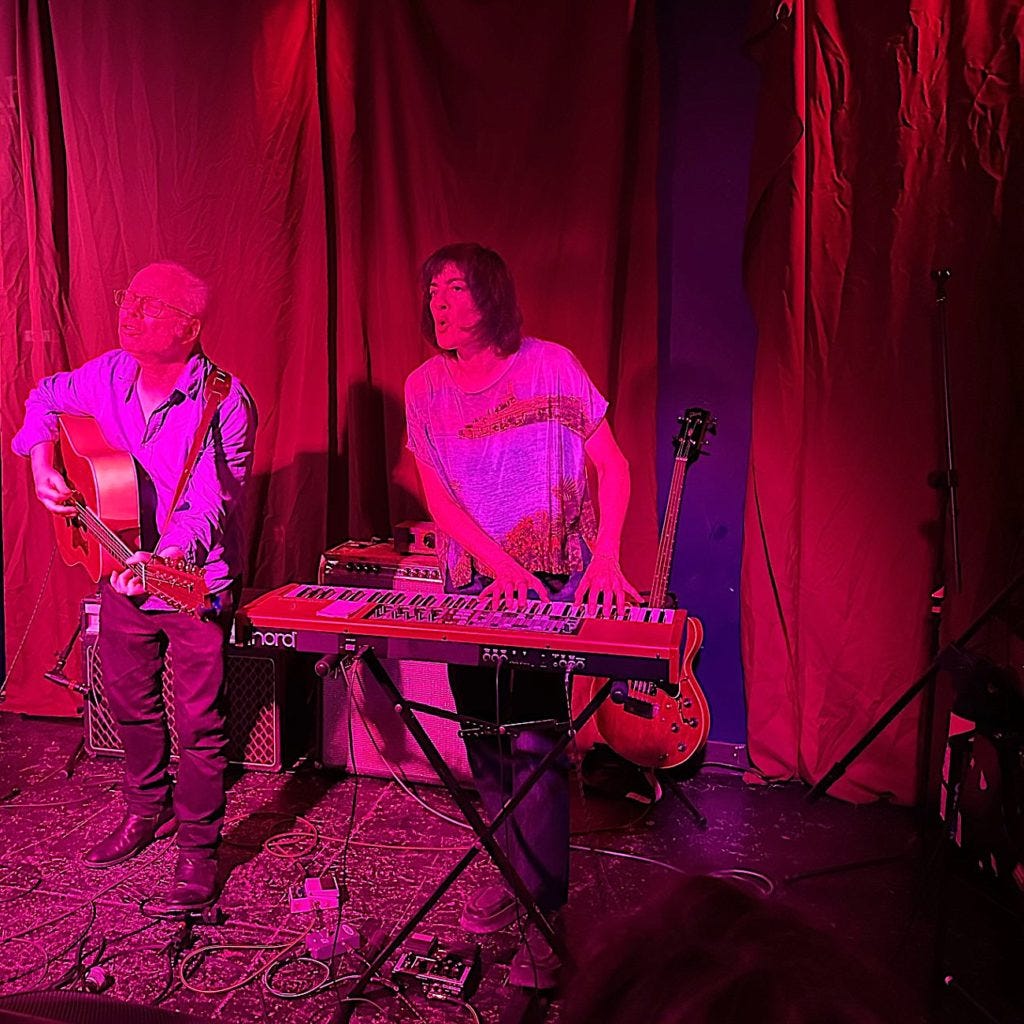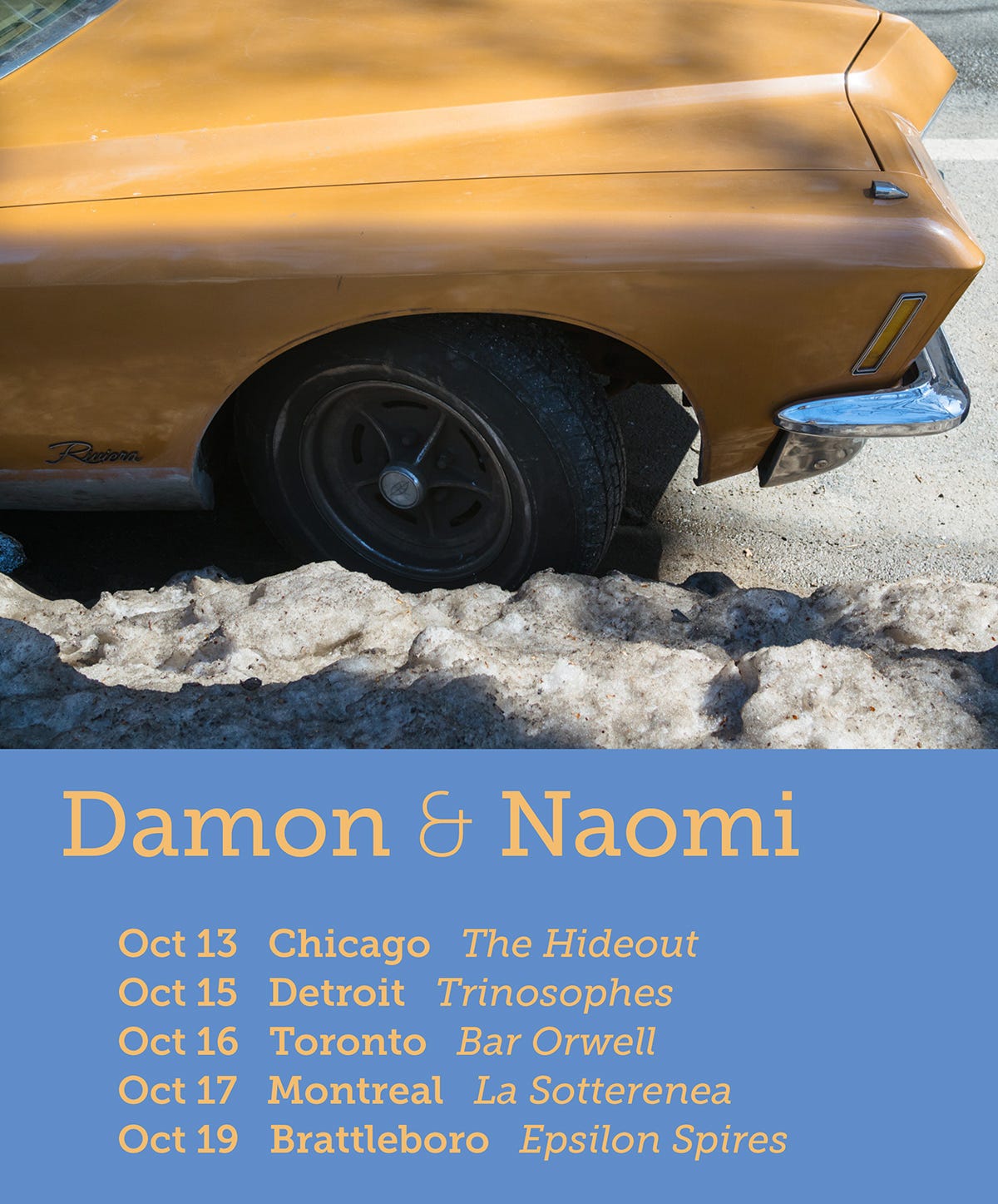DIY Professional
Back from our first overseas tour since the pandemic began – it was wonderful to reunite with friends, to be in other countries, to play music for new audiences… And there were only two disasters.
One unfortunately seems to be inevitable for touring musicians today: I caught covid. And while I’ve been sick on tour many times – although shaking with fever was a new wrinkle – being sick on tour with a highly contagious disease is a fresh logistical nightmare. I don’t have any insight for how to deal with it. Yet deal with it we must, alas. Talk to any touring musician and you’ll get covid stories. This isn’t going away.
But the other disaster was completely avoidable, and so it seems worth writing about. It involved professionalism, or a lack thereof.
Maybe it’s weird to hear a musician like me invoke professionalism. From the start, our music has been associated with lo-fi, DIY, indie – call it what you want, it’s tinged with a love for the homemade, the self-taught, the outsider. We’ve always shunned what we’ve seen as careerism: those choices shaped by conformity to the corporate music business and its banal expectations.
But that doesn’t mean what we do isn’t a profession, with professional ethics and practices. In fact, DIY musicians can be among the most disciplined this way. Look at pathbreaking labels like Dischord, or distributors like Forced Exposure, or the many artists who manage to make a life in music without mimicking existing career models, and you’ll find more than the usual share of committed work habits that can only be called professional. How else to survive as DIY over the years? Not for us the luxuries of what I once heard Sonic Youth describe as “rock-star toddlers,” who assume their every want and need will be met by others.
Not being a rock-star toddler means more than taking responsibility for oneself – it means looking out for one another, too. We’re all here trying to make this doable, not more difficult. Which is a form of professionalism.
Naomi and a good friend in this same business have long talked about the elaborate yet unwritten rules of “rock and roll etiquette.” These are habits you pick up because they make it possible to work in music day after day. For example: Don’t borrow another band’s equipment without asking. Don’t play longer than your set time. Don’t trash the green room. Etc. These are simple courtesies we extend to one another, because we need to do it all again tomorrow. To me, that’s the line between amateur and professional – not the quantity of notes you play, money you make, or nights you work a year – it’s how you engage with your fellow artists and crew. Are you making it possible for them, as well as yourselves, to do this work? That’s not turning music into a normal corporate gig. It’s respecting the labor that goes into our art.
Contrast this with what happened to us in Paris on our recent tour. We were booked into a room which, we were told on arrival, has a DB limit and a hard curfew of 11pm because of problems with neighbors. So far, so normal for a band like ours. We’re nearly as likely to play in a day-care center at night (yes it’s happened more than once) as we are in a venue with full-time staff and shows seven nights a week. We are very used to both.
There was a sweet band opening the evening, who had volunteered to let us use their amps and arrived early so we could soundcheck with them. But there was another band playing in between who showed up right before their own set time. They were billed as “acoustic,” yet came with a full line-up, drums bass keys guitar, helped themselves to any gear they found lying around (some was ours, we later discovered) and proceeded to play a very loud set. Fifteen minutes after we were supposed to be on stage, they announced they had “two more.” And then the owner of the venue stepped in the room and shut the power down.
Emergency lights snapped on by the exits, there was general confusion, and by the time the dust had settled and the house lights came back on that band was gone, leaving everything they had been using on stage. It was now past 10:30pm. The audience complained to the promoter that they had bought tickets to see us and wanted the show to continue. The promoter convinced the venue owner that we were, in contrast to this last band, well under the DB limit set by the neighborhood. And so we were invited to complete the show.
But how…? The stage was crammed with stuff, there was beer on the floor, we couldn’t find all our equipment from soundcheck. I grabbed the frontman of the last band, who had come back to retrieve something from the dressing room – clear the stage of your gear, I said. “It’s not ours,” he replied, and left again.
Amateur.
Meanwhile, the kindly professional soundman was struggling to get the PA back – cutting the power had not only zeroed it out from soundcheck but, we then learned, blown the system altogether. He couldn’t repair it quickly. He gave a quintessential gallic shrug.
The audience was still there, looking at us in silence. No PA meant no recorded music in the room either. We decided to play the show without a sound system.
The soundman and the first band pitched in and together we mopped up and cleared the stage, hunting for our own gear amidst the chaos. It was now nearly closing time, but since we weren’t going to use the PA, curfew no longer mattered. We set the amps to the lowest possible volume and sang without mics.
Maybe it was the most lo-fi show we’ve ever played? But we did it, cause dammit we’re professionals.
And we’ll be back on the road in October.
Listening to: Night Visiting Songs, by Charlotte Grieg
Cooking: with Keufta spice mixture brought home from a North African grocery in Paris





Hope you feel better, Damon. Props to you for being so professional and level-headed, especially since there were people there to see you.
My favorite/most annoying story like that is a guitarist who walked up to me as I was breaking down, pointed to my Deluxe Reverb and said, "Yeah, I'm gonna need that," and proceeded to plug in before I'd even finished packing up. I liked his bandmates (but not him) so I let him use my amp. Many years later, it's still a running joke, like when my wife orders an dish that looks better than mine, I'll slide it over to my side of table with a "Yeah, I'm gonna need that..."
Great post! Feel better and better days ahead.